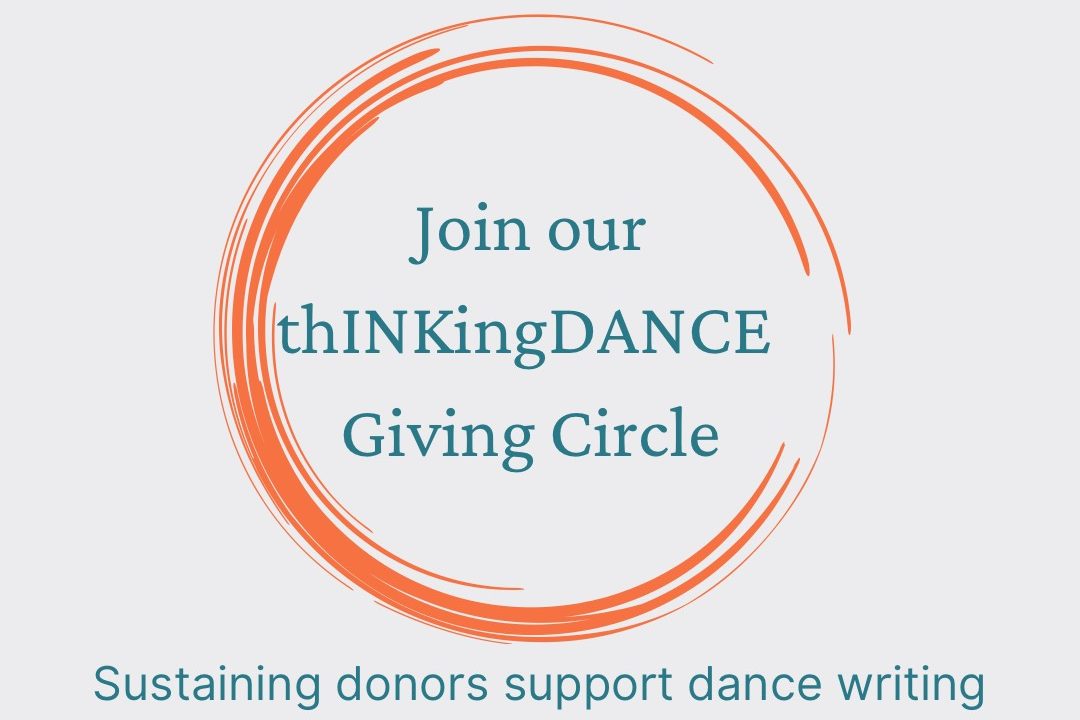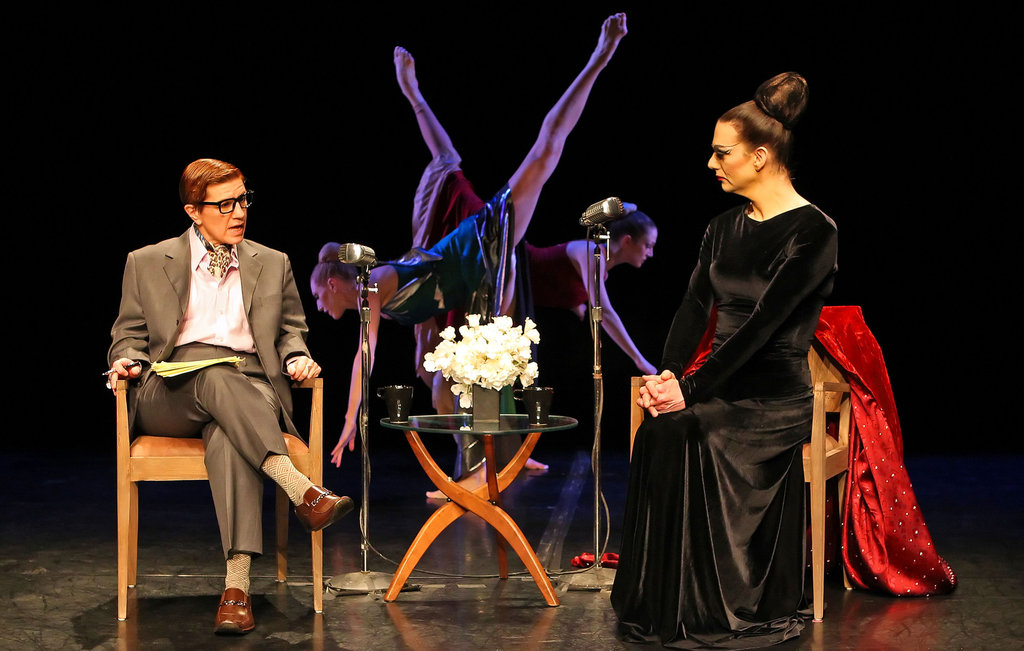To paraphrase Sigmund Freud, sometimes a nude is just a nude. However, in the 20th century tradition of Eastern European theatre and dance, the nude symbolizes the total freedom of a human unencumbered by political repression.
This symbol persisted through the Cold War—for instance, in Witold Gombrowicz’s 1966 Operetka (Operetta)—and long after the end of Eastern-bloc regimes (as seen in Vaclav Havel’s 2010 Leaving). In both works, a naked human danced in a frenzy across the stage while onlookers gaped—some in shock, others in envy.
Today, Ukrainian human rights group FEMEN courts Western media publicity with protests of topless blonde models that remind more of a Parisian catwalk than Soviet-era housing. It’s in this spirit that Hungarian troupe Bloom! Dance Collective’s pantomime and text-driven CITY suggests that the nude as symbol might deserve a bit of spoofing.
Before Bloom’s five dancers took the Arts Bank stage, a garbled electronic voice announced “the performers will now enact a dance about the universal equality of human rights.” After walking into a staggered formation onstage,, the quintet immediately disrobed and then stood with heels tucked one behind the other. As circus music played through the speakers, each dancer dipped into plies, a stupid grin plastered on each of their faces. Later, they formed a line, kicking their legs outward as the line rotated around the center dancer. The audience laughed at the mockery.
But after that five minute segment, the performance reconsidered the idea of the nude as symbol—if not against totalitarian regimes, then in opposition to the daily degradations of a defining consumerist society. A series of posters hung on the back wall of the set; some resembled adverts, others paintings. The troupe peered at each as though looking at works in a museum. A short while later, they struck poses while mugging for photos. In an age of instant-celebrity (Eastern Europe knows no shortage of reality television), these citi-zens carved out as boisterous and bold an identity as each could imagine.
Suddenly, a snare drum began to snap through the sound design’s vague industrial whirring. The dancers moved in unison, each whipping into turns or skating backwards across the stage on bare feet. They marched forward from the back of the stage, resuming their initial staggered formation and strode in place, lifting their legs and arms in imitation of a row of stomping jackboots that ejected some of the dancers out of the unified rhythm and off the stage.
Each expelled member took a seat on folding chairs that flanked the stage. The electronic voice returned, calling each dancer by name, who in turn raised a hand—some eager, others frightened. A list of dozens of adjectives followed: dynamic, depressive, competitive, artistic, atheistic, hysterical, professional, sexual…the dancers continued to shoot their hands upward in echo of words that defined them.
Here, the work’s title (CITY) echoed both Aristotle’s humanizing Polis as much as Kafka’s debilitating Castle. With each adjective called and hand raised, the lights dimmed, and the five dancers recoiled into a huddle. By defining them, words enabled expression and delimited identity.
When the lights returned, the dancers rebelled against this tyranny of vocabulary, stripping off their clothes once more. “Do you think you are original?” the voice asked them until its harangue chased all but one lone nude woman from the stage. A spotlight focused on her as lights shrouded the rest of the stage in darkness. “Are you fucking retarded?” the voice questioned, before berating her further. She draped an arm across her chest and plunged a hand between her thighs, covering her naked body, this once powerful ultimate symbol of human identity.
As she cowered, I felt genuine sympathy, despite my disagreement with the thesis that individuals require liberation from words and norms as much as they once needed freedom from unjust laws and totalitarian regimes. But while I disagreed, I appreciated Bloom’s brilliant construction; CITY is one of the few dances I’ve seen in recent years to put forth a moral argument.
The piece asks if a quest for personal liberty—in the sense of being able to define one’s self irrespective of social judgments—still matters. I may have resisted it logically, but CITY’s powerful emotional culmination nonetheless reclaimed the nude as symbol of freedom.
Bloom! Dance Collective: CITY, presented by thirdbird as part of Seen & Heard 4, Arts Bank, May 3-4, 2012.






